I wrote this article in Japanese and translated it into English using ChatGPT. I also used ChatGPT to create the English article title. I did my best to correct any translation mistakes, but please let me know if you find any errors. By the way, I did not use ChatGPT when writing the Japanese article. The entire article was written from scratch by me, Saikawa Goto.
Introduction
Movies and books covered in this article

I will write an article about this movie/book
What I want to convey in this article
Higashida Naoki’s books have saved parents who wanted to understand autistic children but couldn’t.



This is a documentary film featuring families of autistic children from around the world who say they were saved by Higashida Naoki.
Three takeaways from this article
- Higashida Naoki vividly demonstrated that autistic children have intelligence.
- How to make a film that makes us experience the sensation of autistic.
- Families around the world who love and strive to understand their children despite the remaining prejudice against autism.



I can feel how brave Higashida Naoki is and how much intelligence he has beyond his years.
Self-introduction article


Please refer to the self-introduction article above to learn about the person writing this article. Be sure to check out the Kindle book linked below as well.


Published Kindle books(Free on Kindle Unlimited)
“The genius Einstein: An easy-to-understand book about interesting science advances that is not too simple based on his life and discoveries: Theory of Relativity, Cosmology and Quantum Theory”
“Why is “lack of imagination” called “communication skills”?: Japanese-specific”negative” communication”
The quotes used in this article are based on notes taken at the movie theater from movies in Japanese and are not direct quotes from the foreign language original movies, even if they exist.
Higashida Naoki’s Work has Shocked the World and Changed the Image of Autism
I have not read any of Higashida Naoki’s works, including the original of this film. However, I have read several books written by autistic individuals or parents of autistic children, and while I do not have regular interactions with autistic people, I believe I have some knowledge about autism.
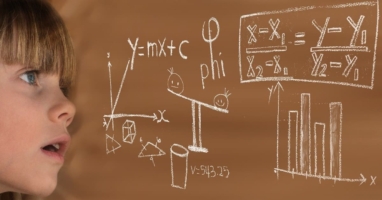



Historically autism has taken a long time to be understood.
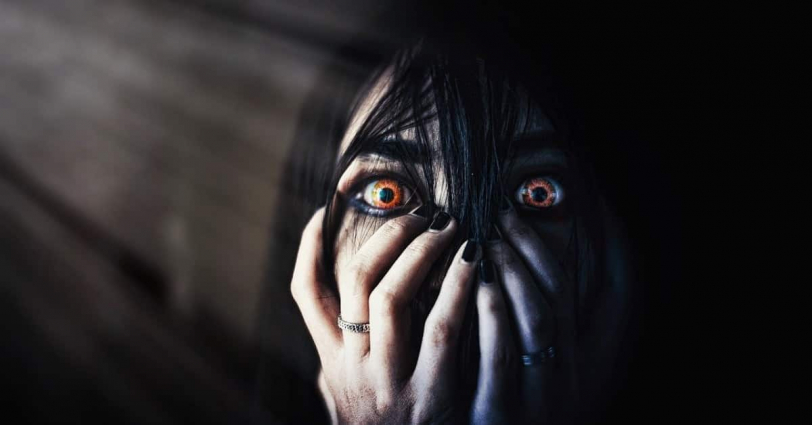

Autistic children who suddenly jump around or act out are often associated with demons.
Until the early 20th century, autistic children were thought to have inferior intelligence.
Higashida Naoki, especially in terms of “intelligence,” completely transformed the image of autism. By carefully verbalizing his inner thoughts, he made it possible to understand a part of what autistic people are thinking. At the same time, it also became clear that “autism is not a mental disability.”


The achievements were truly significant, weren’t they?
You mean that before Higashida Naoki, no one could express that they had intelligence.



It must have been really tough.
In this movie, there is a person who translated Higashida Naoki’s book into English and helped it spread around the world. His son is also autistic. The English translation of Higashida Naoki’s book caught the attention of the producer and led to the creation of this movie.


Film Structure
This film is mostly a documentary.
Let’s first touch upon the reason why “mostly” is written.
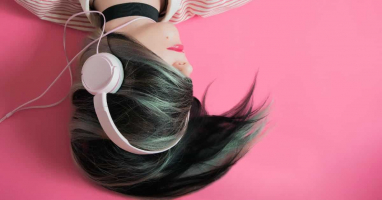

In this movie, there are scenes of a boy who looks Japanese (listed in the credits as “JIM FUJIWARA”) running around a beautiful visual world. This is probably intended to make us think of Higashida Naoki. While the documentary is the basis, fictional parts are also incorporated to add visual contrast.


The documentary part of the movie follows actual autistic children and their families in various countries. While not all of them, many have read Higashida Naoki’s works and mention how it helped them understand their own child’s behavior. Of course, I think they are looking for such people to make them perform, so it’s important not to jump to conclusions, but it would give a sense of the great influence Higashida Naoki has.
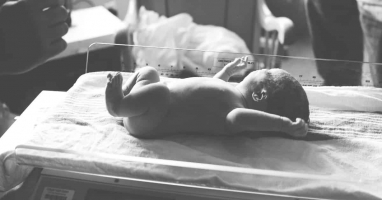




Parenting is difficult in the first place, but for autistic children, it’s even more challenging because their intentions behind their words and actions are often difficult to understand.
However, if you can understand the background and reasons behind their behavior, it might make things a little easier.
I’m not sure if this is an appropriate expression, but the autistic children featured in this movie would be very fortunate. This is because there is still a strong prejudice against autism in the world (which is also depicted in the movie), and some families even make the decision to give up their autistic child. Despite this, the families featured in this movie strive to understand their children properly.


Not only that, but there were also parents who made statements like this:
Jestina made me parent and changed even our perspective on life.
I think people who can have such thoughts are wonderful. Personally, I am someone who does not want children to begin with, so I may not be a reference point, but I don’t think I would feel the same way if my own child were autistic.
In the movie, rather than dealing directly with autistic children, the focus is on the parents who have changed their approach and way of thinking through reading Higashida Naoki’s work.


How the Movie is Made to “Experience” Autism
What I felt while watching this movie is that it seems to be made to give the audience a sense of how autistic people experience things to the extent possible.
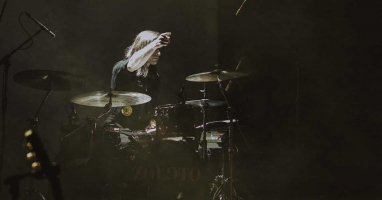

In the movie, there are parts where they talk about how autistic people perceive things, and here’s an example.
Normally, when we see something, we grasp the whole picture first, then focus on the details. However, in the case of an autistic child, it seems they first see the parts, and then gradually expand their view until they can see the whole picture.


In the movie, there were also scenes where I felt that they intended to create such a visual effect. The camera work focused on the parts, making it difficult to understand what it was, then gradually showed the whole picture. I felt like they were trying to intuitively convey that this is how they see the world.


It’s easy to imagine things when they are explained visually like this.



I can feel that we are living in a totally different world, after all, can’t I.
Of course, there are limitations to expressing the sensory experiences of autistic individuals through visual information alone, as things like “repetitive behaviors bring a sense of security” and “impressive colors or shapes can make it impossible to think of anything else” cannot be expressed solely through visuals. Nonetheless, I found it to be an interesting experiment.
Throughout the movie, various quotes from Higashida Naoki’s work appear, presumably to convey the sensory experiences of autistic individuals and help others understand why they exhibit certain behaviors.


For example, the following sensation may be easy to understand:
Words from an autistic child are not their true feelings. It’s like a reflex.
For instance, when we are surprised, we may unintentionally exclaim “Oh!” This is a reflex. Probably even if you asked to “not raise your voice when surprised,” it should be difficult to suppress your voice.
Likewise, something similar happens to people with autism. In other words, they do not necessarily speak their minds but rather reflexively say things without intending to do so.


On the other hand, the following sensations are also explained:


When I try to say something, the words disappear quickly.
I am reacting to what I saw or remembered at that moment.


It means that even if they have something to say, they might end up reacting on what they saw or remembered and not be able to say what they want.
As for this kind of situation, we’re asked as follow.
Can you imagine living a life where you can’t say what you want?
I felt like I was really living in a hopeless environment.


You mean that even though their mind is working properly, they don’t control their body and mouth.



It’s like being constantly controlled by movements that they can’t control with their own will, like yawning or sneezing.
And parents who understand these sensations explained by Higashida Naoki can have the following feeling:
After reading Naoki’s book, I learned about my daughter’s struggles. I was so focused on being a good mother that I didn’t really see my own child.


I used to ask my son why he did such things so many times. The answer was written in this book. This book is like an envoy from an unknown country to me.
In the movie, it is shown that understanding the intention behind actions and words that are not understood can greatly change how people interact.
It can said that Higashida Naoki’s existence was not only a representative of autistic people who could not express their thoughts, but also brought new insights to those who interacted with them, making it highly significant.


The Amazingness of Higashida Naoki
Higashida Naoki himself describes himself in this way.




I used to wish I could live just like everyone else, but now, even if autism were curable, I might choose to remain as I am. Since I think being autistic is normal, I don’t understand what everyone else’s normal is, so it might not matter which one I choose.
At the time he wrote his debut work, he was still young enough to be called a boy, but I think it’s wonderful that he could develop such deep thoughts.
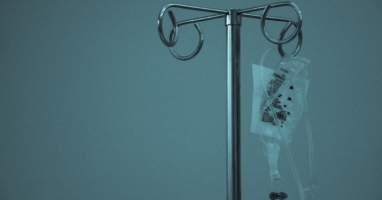




I wonder if I would feel negative about being born as an autistic child if it were me.
It’s not easy to feel positive about it, is it?
In addition, he says something cool like this:
We were surely born outside the domination of civilization. To remind humanity, who has killed many lives and destroyed the earth, of something important.


I love this quote, it’s so powerful.
At the same time, I don’t think it’s necessary for all people with disabilities, including those who are autistic, to live as strong as Higashida Naoki. While I admire his bravery, he is an exception. Not everyone can be like him, and it would be burdensome if he became the “standard” for people with disabilities to live up to.


Higashida Naoki is amazing, but it’s important to remember that he’s an exception among exceptions. My wish is for everyone, whether they have a disability or not, to live without pushing themselves too hard.
Conclusion
I think everyone is attracted to the beauty of nature when they see it. In my case, it’s different. No matter how much I’m rejected, nature always embraces me. When I look at nature, I feel like it’s okay to be alive in this world.
Higashida Naoki’s feeling of “feeling okay to be alive in this world” strongly suggests that he has experienced many situations where he did not feel okay to be alive. And, it is we who have created such a society.


I’ve always been anxious about whether I can live a satisfying life as a human being.
As long as we have the will to want to live and don’t intend to intentionally bother others, I believe that anyone should be able to live peacefully whatever person. This movie can also be a starting point for thinking about what we can do to create a world like that.


Published Kindle books(Free on Kindle Unlimited)
“The genius Einstein: An easy-to-understand book about interesting science advances that is not too simple based on his life and discoveries: Theory of Relativity, Cosmology and Quantum Theory”
“Why is “lack of imagination” called “communication skills”?: Japanese-specific”negative” communication”







コメント